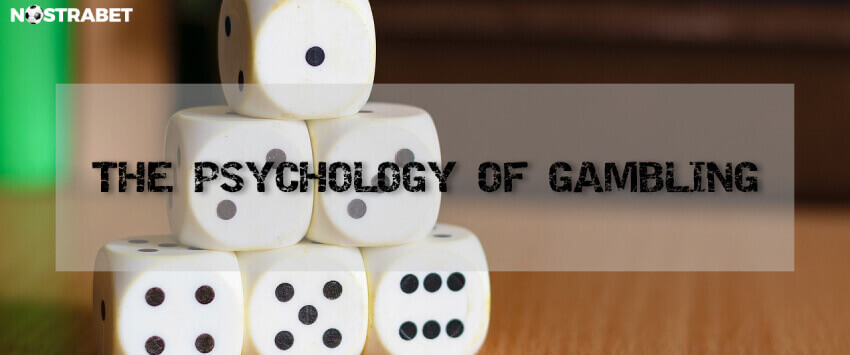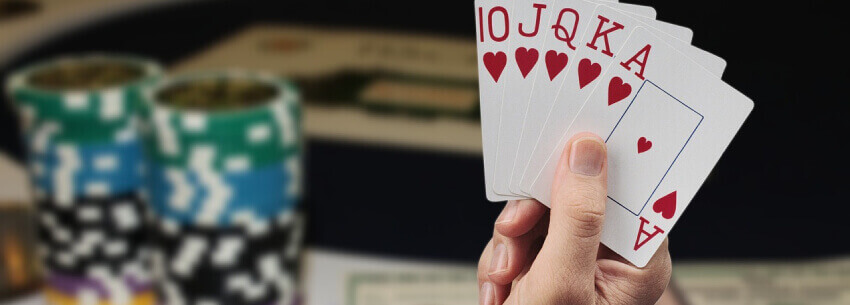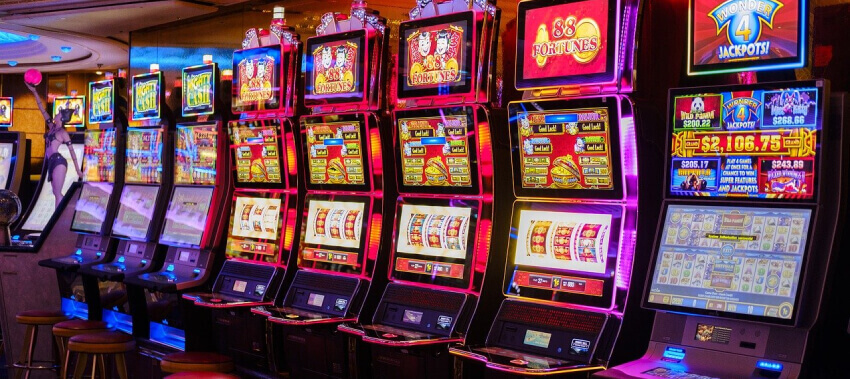Gambling has been a source of fun and, if you’re lucky, wealth for a long time. Typically called a “game of chance”, the act of gambling has been a social and economic endeavour over the years. The psychology of gambling and the act of random stakes with a significant adrenaline hit has helped keep gambling relevant as a hobby. However, there is an alarming increase among the cases of gambling going too far.
Psychology and gambling addiction have been the subject of numerous studies; some games and casinos will lean into associated neural processes. They will fuel that compulsive link to pleasure and motivation.
So what is it that constitutes addiction to gambling? The chance to win in a minimal amount of time is likely what makes gambling so appealing. With luck factoring in, winnings can become compounded, increasing the desire to continue.
This desire is also likely due to the release of dopamine, which acts as a natural hit of good feelings. Dopamine is released during other pleasurable activities, so people can associate gambling with something enjoyable.
However, there is psychology around successful gambling: knowing your rules and understanding what you’re getting involved with. Keeping a clear head, understanding the odds, and knowing when to stop are vital components of becoming a better gambler.
Most, if not all, gambling games can be a social experience of sorts. Even if you’re sitting at the slots, you have people around you who can relate to your exact experience. There’s the added element of a competitive edge in table games, such as blackjack or poker. Either against your peers or the house, casino games can speak to that innate desire to win.

The Latest Studies for the Psychology of Gambling
Here is a list of some helpful publications related to the psychology of compulsive gambling. Many speak about gambler’s fallacy psychology and how that mentality spurs players on.
- Paul Rogers wrote the article ‘The Cognitive Psychology of Lottery Gambling: A Theoretical Review’. In this article, Rogers applies more research emphasis on lottery play and gambling.
- Marco J. Esposito released the book ‘Psychology of Gambling’ in 2008. Esposito discusses how psychology, genetics, neurobiology, and treatment factor into what gambling represents.
- Nicoletta Vegni & Francesco Maria Melchiori et al. worked together on an article called ‘Gambling Behaviour and Risk Factors in Preadolescent Students: A Cross-Sectional Study’. This article, published in 2019, suggests that gambling addiction can manifest at an earlier age.
- Also, in 2019, Jonathan Parker released an article called ‘Exploring Psychological Need Satisfaction From Gambling Participation and the Moderating Influence of Game Preferences’. The article explores how different games and the different ways they’re played feed into particular psychological needs.
All of the publications above speak about how gambling affects one’s mind and the hypothetical impact on your psyche.
Are There Psychological Varieties Based on Gambling Types?
Yes. Studies suggest that depending on different gambling types, you will experience the psychology of compulsive gambling differently. Slots have the highest cases of boredom and inattention, whereas table games like poker invoke a more excitable, competitive feeling.

Gaming psychology is unique because it has many factors that affect one’s thoughts and perception of gaming. Gamblers are notoriously superstitious and believe a particular game is better than the others because of information thrown around. This can sometimes lead to a bandwagon effect, where players don’t want to feel left out of the games that are supposedly paying out well.
What Is the Relationship Between Gambling Psychology and Gambler’s Fallacy?
A study into the Gambler’s Fallacy and other gambling psychological effects were done by Rachel Croson and James Sundali in 2005. Croson worked for the University of Pennsylvania and Sundali for the University of Nevada. Their article, entitled ‘The gambler’s Fallacy and the Hot Hand: Empirical Data From Casinos’ explores the topic further.
Gambler’s fallacy is a part of gambling psychology. The fallacy is a psychological process whereby the gambler mistakenly believes that if an event happens repeatedly, a different one is imminent.
For example, suppose you are at a roulette table, and the ball has landed on odd numbers a certain number of times in a row. In that case, you will be inclined to bet even just because it feels like a different outcome is imminent.
How does the gambler’s fallacy affect gambler’s conceit in the sphere of gambling psychology?
Gambler’s conceit is another fallacy that David J Ewing first described. Gambler’s conceit believes that you can stop risky behaviour while still engaging with it. Gambler’s fallacy is related to this because of the illusion of choice aspect. They both feed into the delusion that you, as a player, are absolutely in control.
Gambler’s fallacy would suggest that the odds will swing in your favour eventually. Gambler’s conceit is the thing keeping you there, in the false hope that it will happen. You believe that you have the control to stop when you want, but not until you see those odds change, according to the gambler’s fallacy.
Why do People Gamble?
In order to understand the psychology of gambling and the potential problems, you need to know why people gamble in the first place. It’s almost impossible to state every reason because every person is different, but there are a few things we wish to point out.
Escaping Reality
Surprisingly, one of the reasons why many people start gambling is because they want to escape their reality. Wagering on a specific sports event or playing casino games for an extensive period of time is usually fun. This allows gamblers to “escape” from their daily life and have fun with something.
Sadly, most people in this position usually have some kind of problems in their real life that “force” them into looking for an escape. Although gambling can be fun, it can also be dangerous, so people have to be aware of the potential risks. Speaking of the devil, this is another thing we want to talk about.
People Love Taking Risks
This is definitely not true for everyone, but a lot of online gamblers are interested in playing because they like taking risks. Some sports fans and casino enthusiasts are eager to see if their bets can be successful. They like the thrill of wagering on something and do not know what will happen, and they are willing to pay money for it.
Some Gamblers Associate This Activity With the People They Like
There is an ongoing debate about the gambling ads and their effects on people. Some say that they do not have that much of an effect, but there are a lot of gamblers who decide to give it a go just because they associate gambling with a specific person or activity.
Nowadays, gambling ads are everywhere we look. Some countries even allow the biggest gambling operators to have TV ads. Those things have an effect on certain people because they believe that gambling will make them look “cooler”, and they associate themselves with the specific famous person that promotes it.
The Social Aspect
It’s no surprise that a lot of people do not have a lot of friends or family to talk to. To make up for that, some of them decide to start gambling because they can meet new people and even make friends.
While this is mostly true for land-based gambling, we can see that many online casinos have started offering different social features. For example, many operators have chats where gamblers can communicate with each other. They also have social media platforms that allow punters to come together and discuss different things.
They want to make money
Last but definitely not least, many people start gambling because they want to make money. For some reason, a lot of them assume that gambling is not that risky and can offer them a lot of return on their money. Sadly, this is not the case.
Whether you want to bet on something or play casino games, there is always risk involved. That’s why you should not think of gambling as a source of income.
How Does Gambling Games’ Design Affect Gamblers’ Psychology?
Many gambling games will feed into the addictive nature of the game in subtle ways. Often, a casino will give players the illusion of control or a priority. They will do this with bonuses and extras that the player can earn, giving them the false sense that they have the edge over the house.
This is hardly ever the case, and many bonuses and extras that a casino provides have been carefully catered to in a way that affects them the least. A phenomenon called partial reinforcement is a significant contributor to addiction. Players believe that there is always a chance to win, just as losing is part of the process. The problem comes in when factors in your environment affect your personal choice.

Casinos will often factor into these psychologies and the psychological effects of gambling addiction: The blinking colourful lights and music that go off when you win something. The satisfaction of beating out the house or the other players at the table – the association and inclusion of substances like alcohol – inhibits your decision-making further. All of these contribute toward that precious hit of dopamine. Casinos are aware of it, so these are some of the ways that they subtly feed into it.
Which Are the Gambling Superstitions in the Psychology of a Gambler?
Some psychological effects of gambling manifest in superstitions known across the world. For example, gamblers believe that the number 13 is unlucky. Conversely, Chinese gamblers believe the number 4 to be unlucky in the east.
Some superstitions can appear even less grounded in reality. For example, it’s often assumed that using the back entrance to the casino is luckier than the front. Some superstitions could be argued more for etiquette’s sake, such as not counting your money at the table or lending money to another player. Both of which are seen as ill omens.
There are good luck superstitions, too, of course. Some common ones include blowing on the dice or wearing a lucky charm to the casino. Some more abstract ones, too, such as wearing red in China, as the colour is associated with wealth and prosperity.
What Are Mood (Emotion) Regulations to Predict Gambling Frequency?
You may find yourself wondering, what are the benefits of gambling? As with many other things that give that precious dopamine hit, gambling is used to cope with negative emotions and could help with explaining the psychology behind gaming.
Feelings of stress and anxiety can be alleviated by gambling. Mood regulation has to do with your ability to react to an experience and whether or not the emotion you reacted with was socially acceptable.
When it comes to mood regulation and gambling, it has to do with negative emotional states a player experiences and how that player is affected by gambling. Often, a person will use gambling to regulate their mood. To replace a stressful feeling with a more positive one, for example.
Through mood regulation, experts can predict and make a psychiatric diagnosis on a player’s habits based on the emotions they’re feeling. Such as the likelihood of them gambling while feeling a certain way and how the gambling outcome affects their feelings.
As noted in the research paper, ‘How psychological symptoms relate to different motivations for gambling: an online study of internet gamblers’, biological determinants such as stress can’t be ignored when studying gambling addiction.
What Is the Psychological Description of Gambling Addiction?
Looking at addiction as somewhat of a psychological review on the motive of the gambler, gambling addiction can be described as the loss of impulse control over the decision and urge to gamble.
One truly becomes addicted when one is aware of the consequences of their actions but chooses to neglect them. If you or anyone you know is suffering from gambling addiction, consider getting in touch with organizations such as GambleAware.
Furthermore, if you are unaware of the harms and effects of gambling, consider using a platform like the National Problem Gambling Helpline Network to become more conscious of the problem.
Is there a predisposing genetic characteristic for the psychology of gambling?
Studies would suggest there is a genetic component to psychology and addiction to gambling. For example, a parent is likely to pass down the trait. There can also be external factors that influence addiction, such as an early adverse gambling experience. Still, the genetic factor provides a psychological stepping stone for a player to begin their habit.
Bandwagon Effect for Gamblers – What Is It?
The Bandwagon effect is the phenomenon where people change their behaviour based on the attitudes or actions of other people. New research on the psychology of gambling would suggest bettors can be easily swayed if one of their peers convinces them that their odds would be better somewhere else.
If news of a particular game, slot, or race was beginning to sway in the player’s favour, there is a good chance that gamblers will flock toward it. Gambling and the bandwagon effect have that extra detail of also being financially motivated.

For example, a player goes to a horse race where they would typically bet on their usual horse. They get a tipoff that another horse will perform well and that many other people have laid their stake on it. This gambler will then be more inclined to change their attitude toward their favourite horse based on what the majority crowd has suggested.
Does the Operant Conditioning Chamber (aka the Skinner box) explain the Psychology of Gambling?
Operant conditioning and gambling are frighteningly similar. We can use it to explore the psychology of why people gamble. The idea behind the study is to reward the animal in the experiment with a treat if they perform the correct behaviour and give them a shock upon the incorrect behaviour. It’s a classic case of reward and punishment.
Using a slot game as an example, you pull the lever to retrieve your prize. In a rat’s case, it might be pushing a button for a snack. Suppose you do not perform the desired behaviours. In that case, you are instead faced with anxiety and discomfort — the case for humans being the dread related to financial loss.
